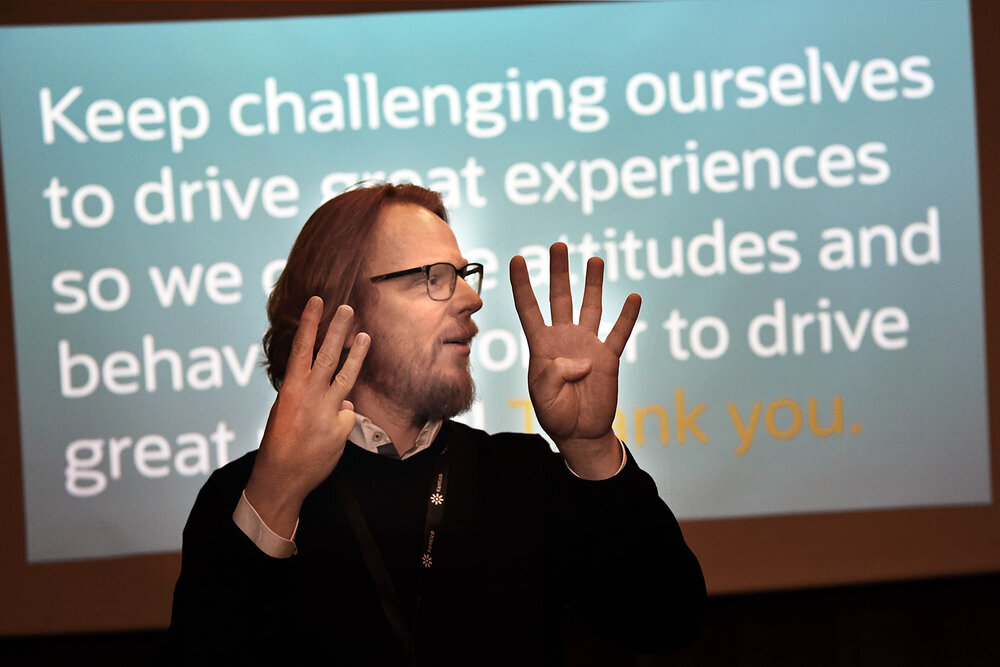Can you create needs?
What is an experience?
These were some of the relevant questions raised by Michael Bednar-Brandt from Oracle as he took Boye 19 Aarhus conference participants on a journey to untangle the experience economy.
In his highly engaging and entertaining keynote, he offered an answer which can be summarized as:
Drive attitudes to drive behaviours.
Achieve repeat positive experiences, which can change attitudes.
Use empathy to understand how to turn interactions into positive experiences.
Michael is Head of Business Innovation at Oracle NEXT, a co-innovation program, and has previously shared his thought-provoking take on the rise and upcoming fall of customer experience.
Seven key elements to manage the experience economy
Experiences are clearly the critical link between a company and its customers, yet many struggle to meet expectations. In his opening, Michael offered a helpful reminder to continue to think about experiences as always about a human individual. He offered this helpful definition of an experience:
A subjective perception of an interaction with something or somebody
An important point he raised is that needs are the real race we are all in now. How do we become positioned as the one who serves your needs the best?
To dive deeper and deconstruct the experience economy, Michael took us through the seven key elements in this order:
Results - typically revenue or cost
Experiences - perceptions about an engagement
Engagements - interactions along a journey
Expectations - beliefs about my impending engagement
Attitudes - what I think and feel in the pursuit of my needs
Needs - functional & emotional motivators
Behaviors - what do I do in pursuit of my needs
Driving it home with the closing slide: Michael Bednar-Brandt from Oracle taking the Boye 19 Aarhus conference participants through the seven key elements. Photo: Ib Sørensen
As you might have learned on your own, changing behavior is the hard part. This goes for bad habits as with the experience economy.
Michael also made the point that expectations are set by your competitors for solving given needs. That means you are chasing a moving target.
Finally, Michael offered a framework for measuring your progress with four different dimensions to measure:
Graphic recording from the keynote made by Michael Eriksen from Visuel Retning
Operational measures for partners, resources, activities and propositions
Behavioural measures for engagement and behaviours
Attitudinal measures for expectations, experiences and attitudes
Financial measures for results (revenue or cost)
Good luck with your initiatives and as Michael would say remember that:
Behaviour drives results
Learn more and further reading
Have a look at You can’t shortcut becoming a digital leader, which Michael wrote back in 2017.
You can also meet Michael in our European corporate innovation and intrapreneurship peer group.



